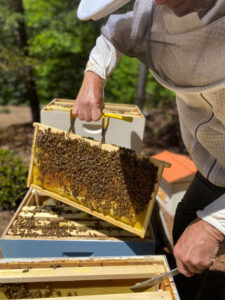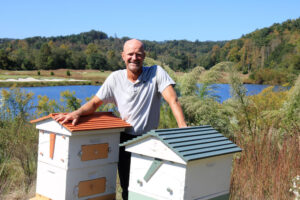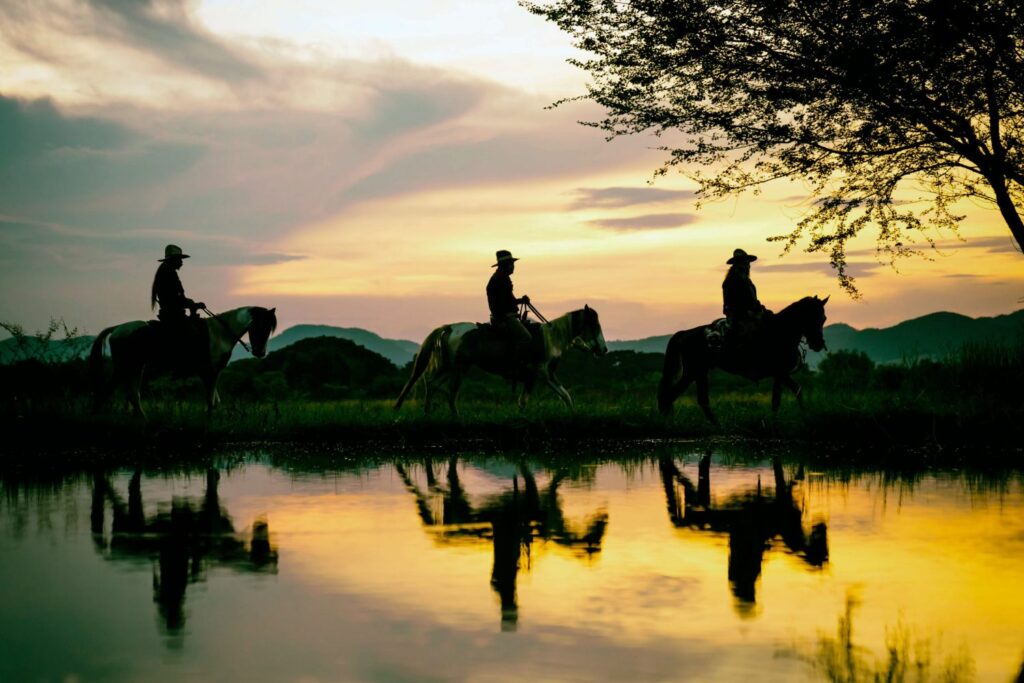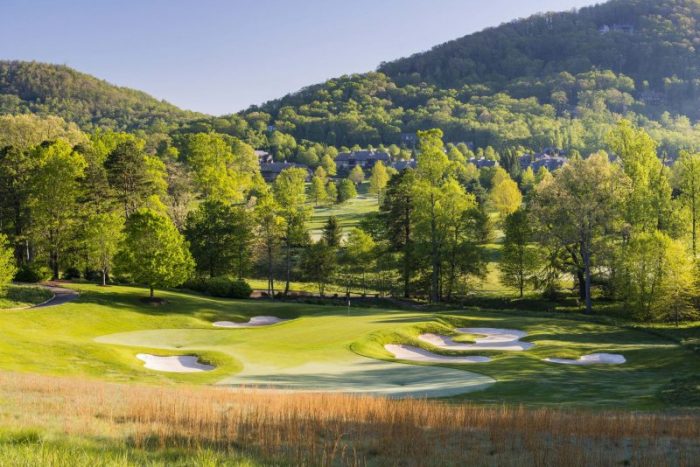A retirement filled with honey-do lists.
He’d heard about that sweet spot in retirement — the place where couples don’t work but still stay happily occupied — so as the big date drew near, Jeff Moser started thinking of hobbies that would complement his wife DeAnn’s interests.
She likes to garden. He enjoys cycling and motorcycles. He also likes nature … and that’s how he landed on the idea of beekeeping. 
“She’s so good with the flowers and birds, and I felt like beekeeping was a natural extension of that,” says Moser, a former investment industry executive. “We both love seeing my bees on her flowers.”
The Mosers are double dwellers at The Cliffs. The couple built their lake house at The Cliffs at Keowee Falls in 2009, and last spring they relocated from Charlotte, North Carolina, to The Cliffs at Mountain Park.
He’d launched his beekeeping hobby four years ago, while still living in the Queen City, and during the move to Mountain Park he relocated one of his bee boxes to the couple’s lake house.
“It was the best hive I’ve ever had,” Moser says. “That queen was just the best laying queen. Every time I’d go check on it, that hive was always full of bees and they were happy making honey.”
Two weeks shy of his first honey harvest, he pulled into the lake house driveway and found his frames spread across the yard.
“My heart sank,” he recalls. “I knew immediately, a bear had gotten to it. I was bummed for an hour and then I thought, ‘I do this to be a part of nature and that bear needs to eat, too.’ I looked down and there were big ol’ paw prints where you could see she got as much honey on her paws as she could, and just started licking it off.”
 Next spring, Moser plans to set up more hives in his backyard at The Cliffs at Mountain Park, overlooking the pond and the 11th hole pin.
Next spring, Moser plans to set up more hives in his backyard at The Cliffs at Mountain Park, overlooking the pond and the 11th hole pin.
“I like working with the bees,” he says, explaining his passion. “I like opening up the hive and watching them and seeing what they’re doing. It’s fascinating to see how they’re forming the cells and the honey and pollen.”
He also enjoys mentoring other new beekeepers, who include Jim Evans, Director of Agronomy & Superintendent at The Cliffs at Keowee Falls.
“We put up two hives [on the golf course] this year between holes 8 and 9,” Evans says. “The members love it. It provides benefits to the environment, and it’s a way to cross lines and provide honey to Shawn Creef, our executive chef.”
No. 12 at The Cliffs at Glassy is home to two hives, tended by Golf Course Superintendent Tim Ale and Horticulturist Jeff Melvin. Superintendent Ty Roberts and Groundskeeper Doc Jones maintain six hives on the course at The Cliffs at Keowee Springs.
All of this has Evans buzzing with ideas to make beekeeping an even bigger venture across The Cliffs communities.
“Next spring, the hives will be part of a large vegetable garden, as we develop the agri-business side and live off the land a little bit more,” he says.
And the land needs help. For reasons not fully understood, the worldwide honeybee population has suffered a catastrophic decline over the past decade.
That’s a huge concern, as healthy humans depend on healthy bees. In addition to pollinating the flowers we love to see, and producing the honey we love to eat, bees play a vital role in our food supply. Bees pollinate a third of the world’s crops. In the United States, bees pollinate approximately 130 agricultural products including fruits, nuts, and vegetables.
The Honey Bee Health Coalition points out that every third bite of food Americans take relies on some form of pollination.
Hobbyists are helping honeybees make a comeback. Moser likes taking an active role in protecting the land.
“I love nature and being part of the solution to help flowers and plants and trees,” he explains. “On a warm, sunny day, my hives look like the Atlanta airport with bees going in and out, and in and out. It’s a wonderful thing.”
This story was featured in Cliffs Living magazine. To read more stories like this one and learn more about The Cliffs, subscribe here.





